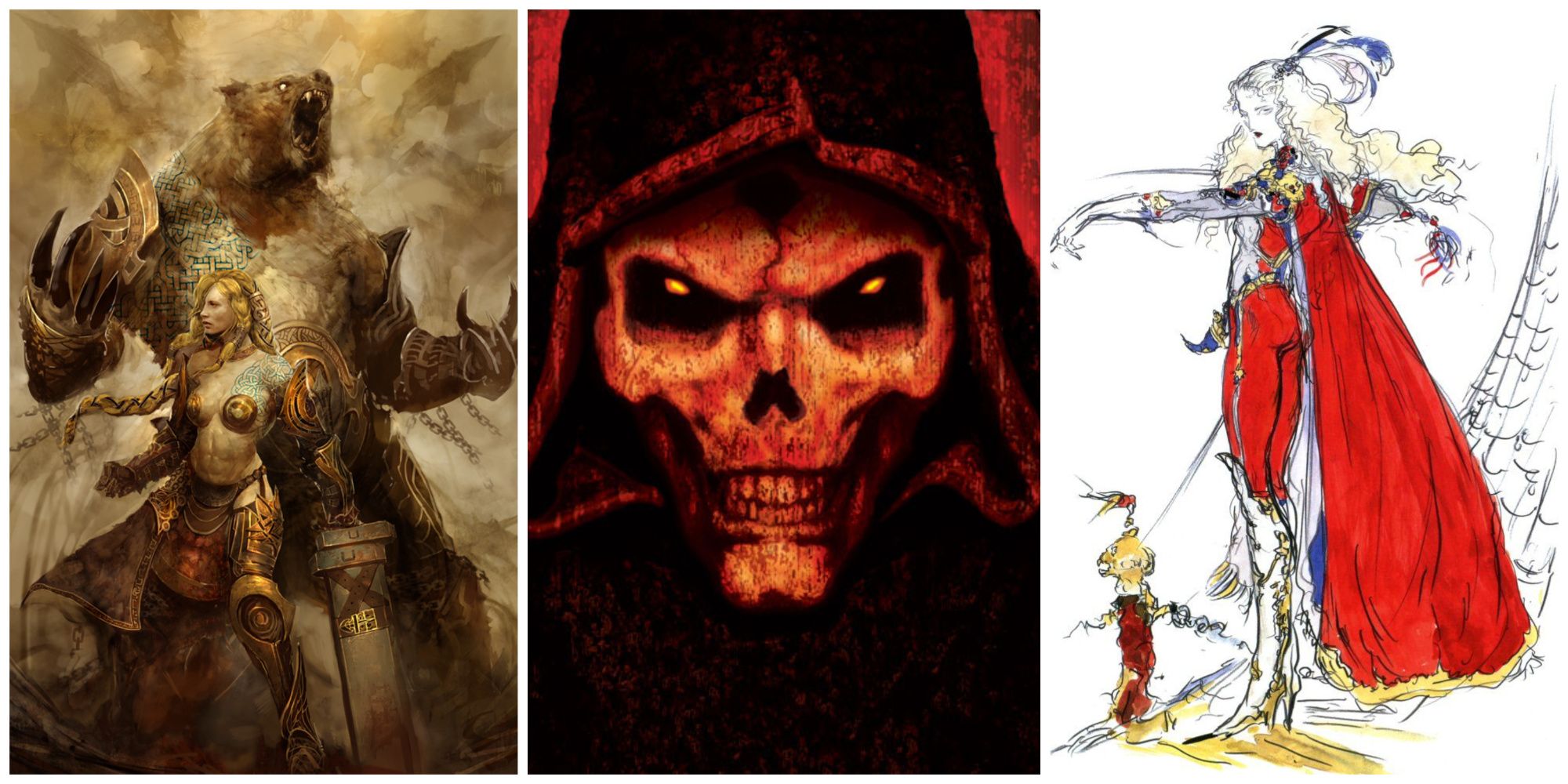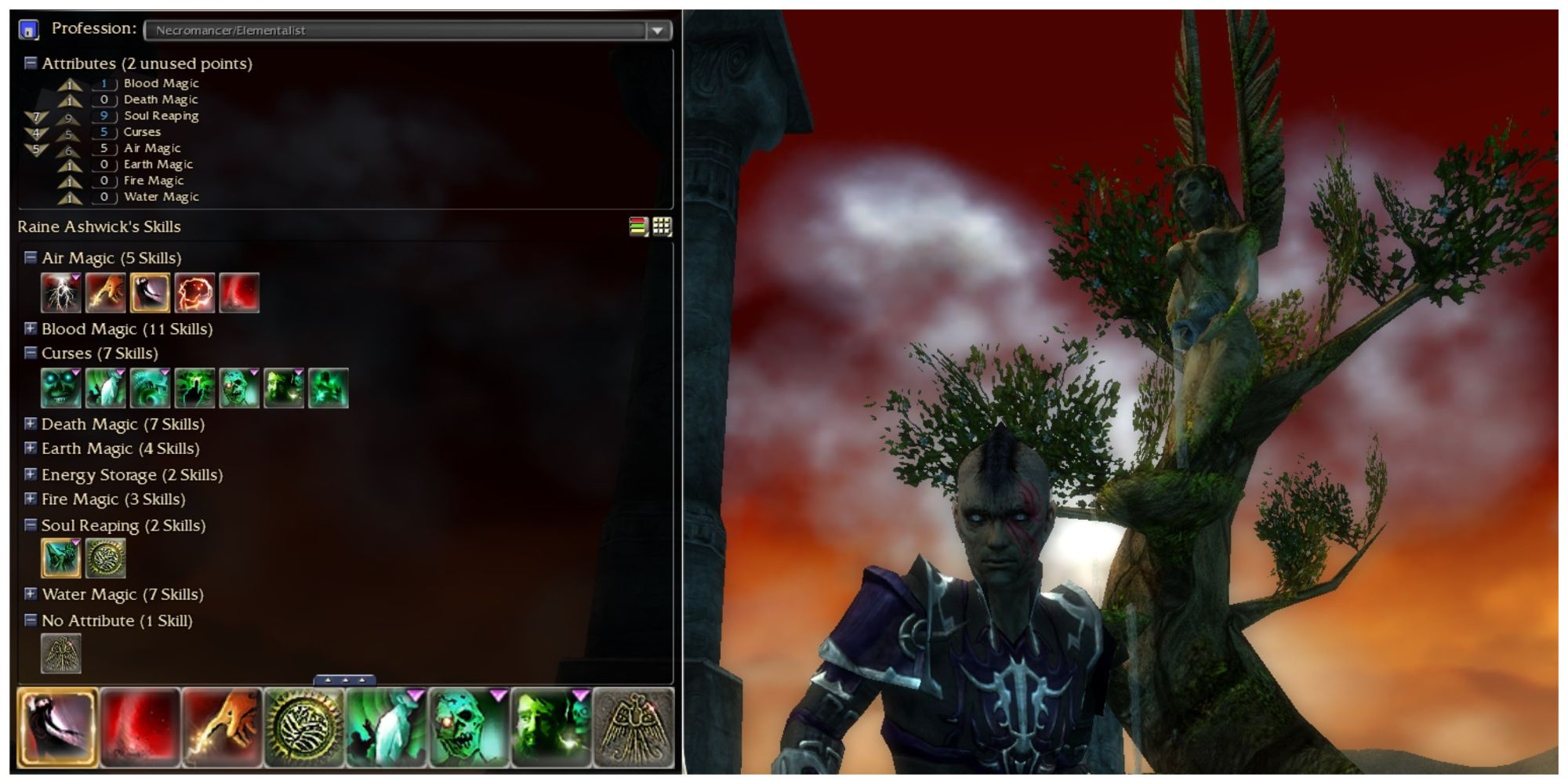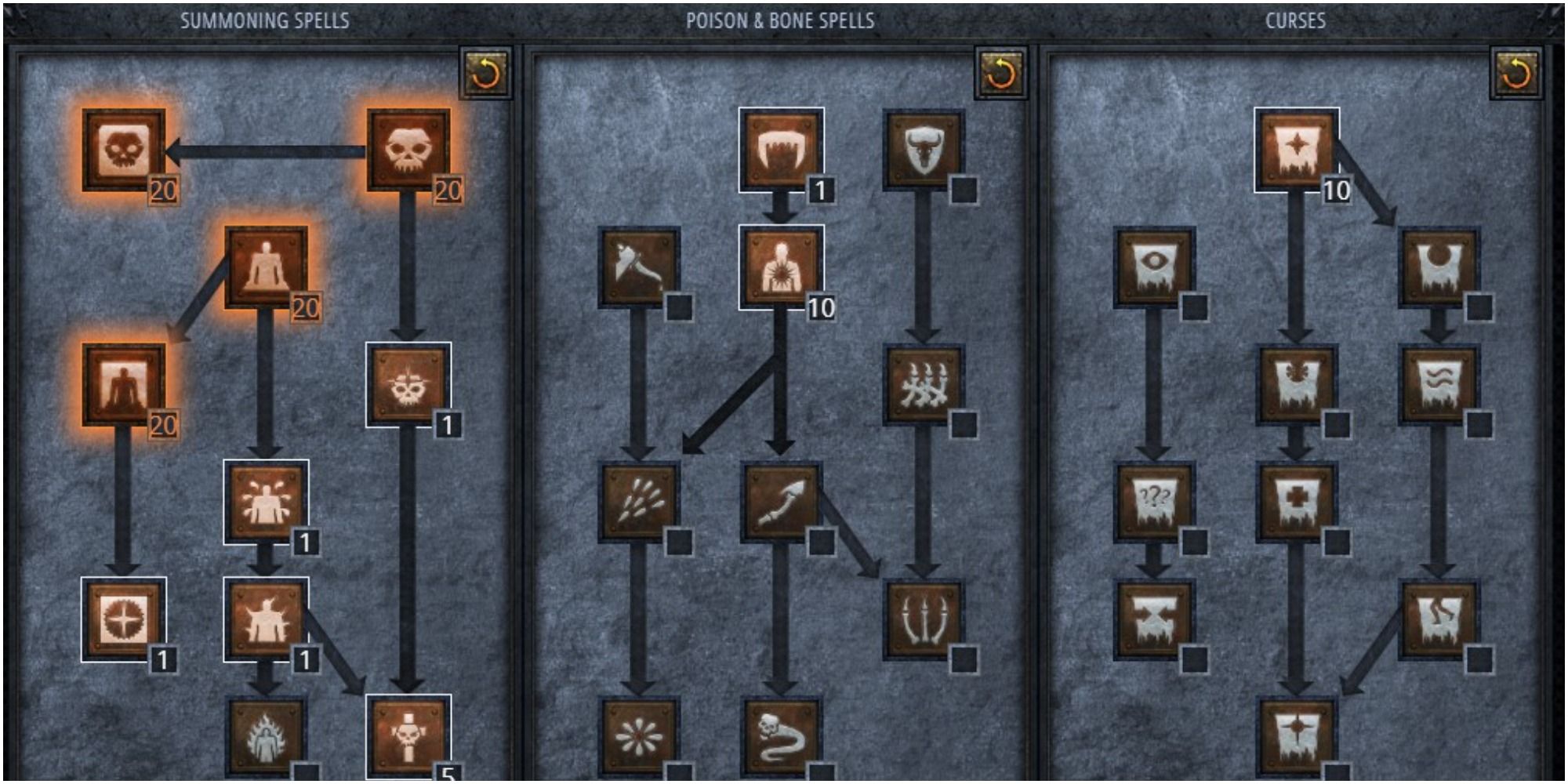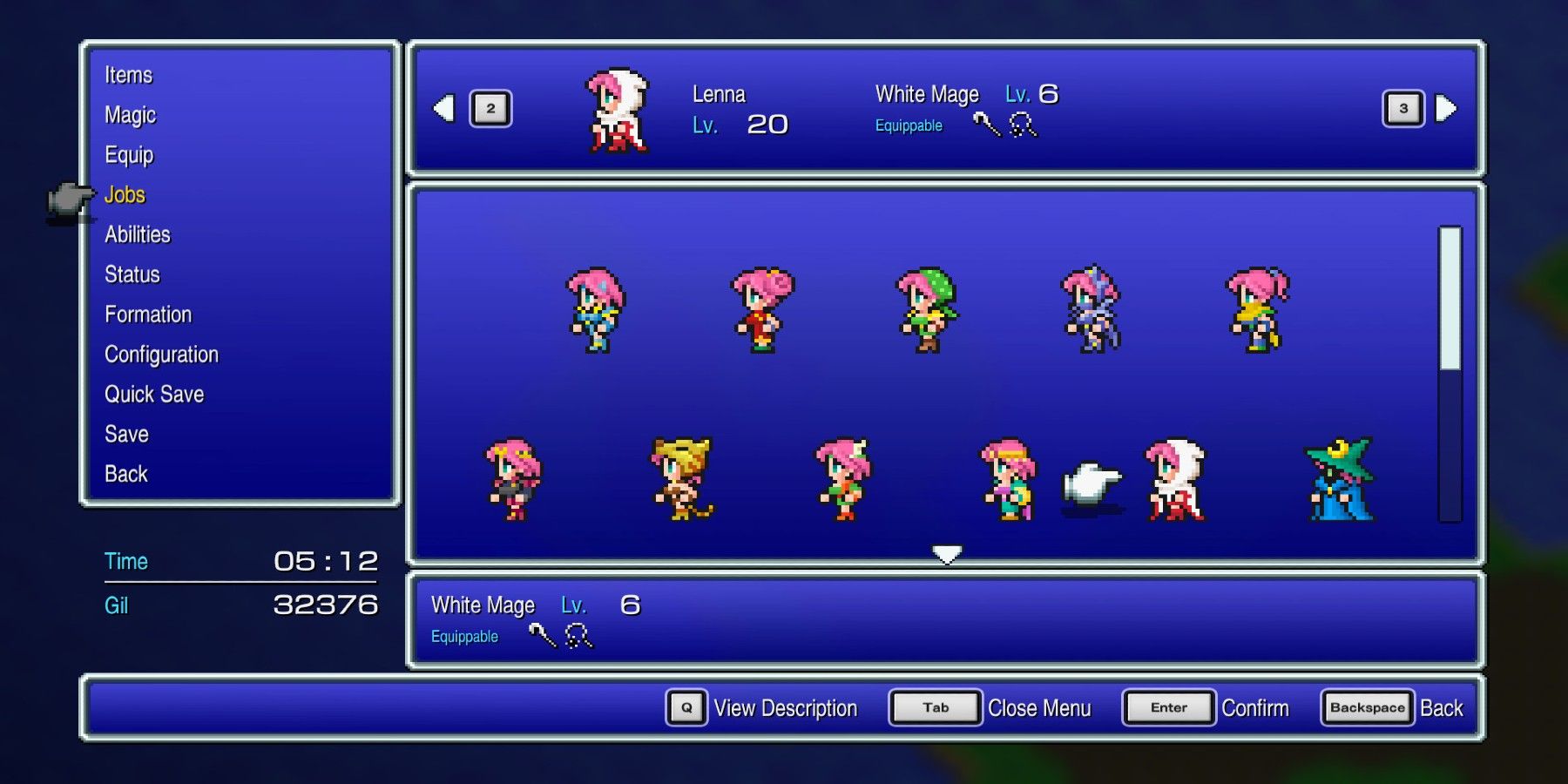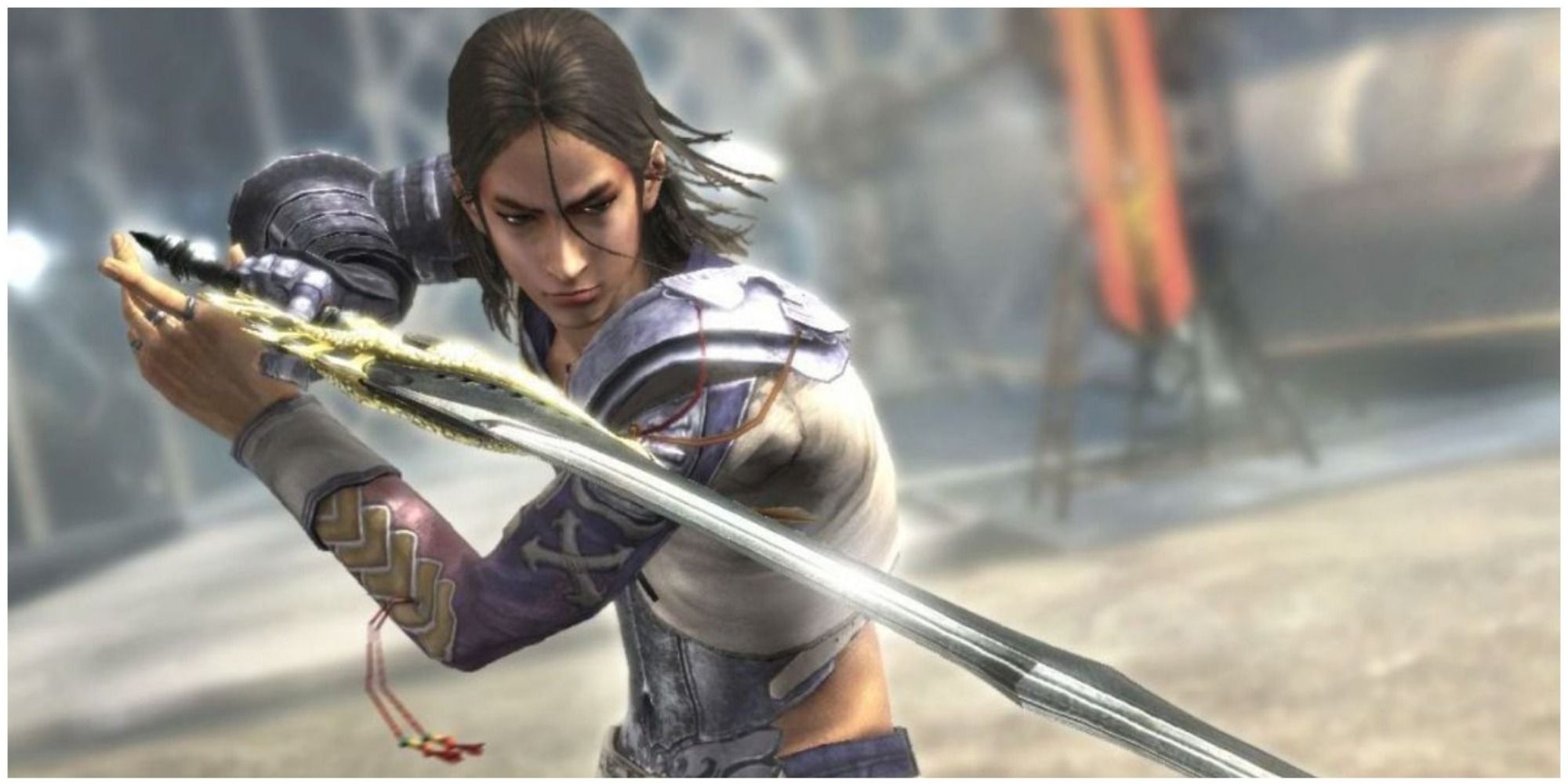Highlights
- Games that use a horizontal system, like Guild Wars, offer collection-based progression systems for character improvement.
- Diablo 2 introduced impactful skill trees for meaningful character development in RPGs.
- Skyrim's intuitive activity-based progression balances character enhancement without complex planning.
Besides a good story, likable characters, or a big, detailed world to explore, the most important hook to any role-playing game is its progression system. Levels, skill increases, and stat enhancements all work together to give the player the sense that they are slowly improving their characters as they take on more important missions, take down larger threats, and slowly hone in on the end credits.
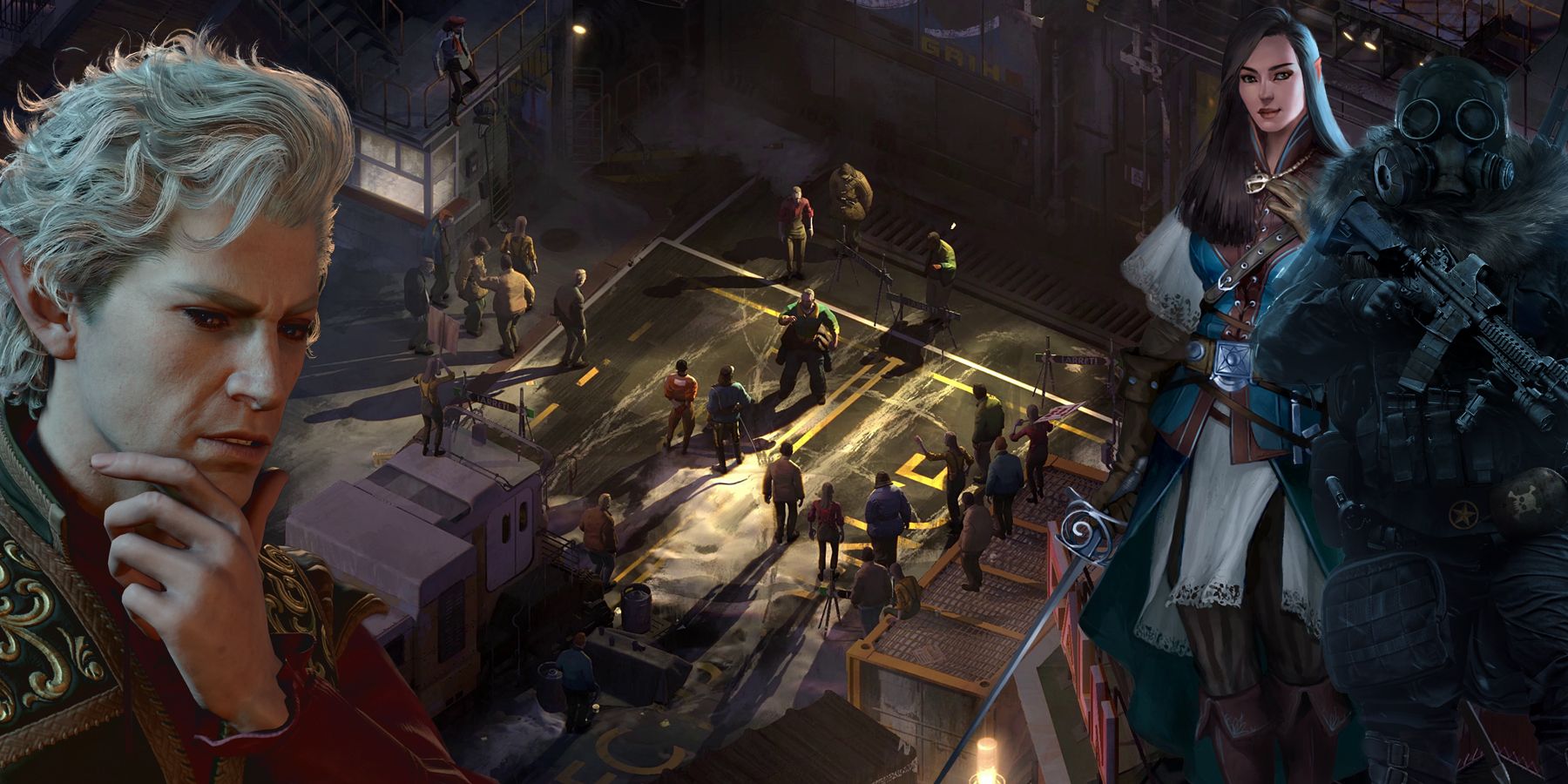
Best Modern-Day CRPGs, Ranked
CRPG was once thought to be a dead genre, but games like Disco Elysium & Divinity Original Sin resurrected it. Here are the best modern ones.
Over the years, various studios have shown gamers that there is more to progression than "line go up" and that the journey, akin to climbing a mountain, need not be monotonous. After all, there is always more than one way to reach the top. These games keep their players engaged, protect them from power-creep oversaturation, and (regardless of the time it takes to beat the game) keep them excited to see what comes next throughout their climb to glory.
Guild Wars
Horizontal Progression: Skill Collection
- Players build "decks" of skills, which they can obtain incrementally throughout each campaign
- While skills are meant to be balanced, there are also "elite skills" that can be acquired by beating difficult bosses
In Guild Wars, players choose a primary and secondary profession (class). Then, rather than just gaining stronger stats or new skills at a level up, new skills can be unlocked through quests or trainers spread throughout each campaign. Each acts like a "card," like a real-time RPG deck builder or the Magic: The Gathering card game, and can be added to one of eight slots. Besides the special, one-per-character elite skills, each skill does something different and is meant to be synergized with others through clever build craft. Player characters still level up (up to level 20), and each level-up gives players points to distribute into their attributes, augmenting their skills' duration, potency, or power.
Each level-up also grants a skill point, which players can use to buy a new skill from a trainer at a progressively escalating additional gold cost. They then gain a new point each time they fill their experience bar. Elite skills can only be unlocked by defeating the boss enemies scattered across each of Guild Wars' maps. Players can potentially unlock every skill in the game thanks to their ability to switch secondary professions late in each story. This horizontal system guarantees that players will be excited to find quests that grant unique skills. It also mitigates the issue of power creep and gives players a reason to scour the landscapes for rare elite skill capturing.
Diablo 2
Offering Well-Paced, Impactful Progression With Skill Trees
- Diablo 2 popularized the concept of the "skill tree," a more impactful and compelling alternative to the traditional point-buy system
- The skill tree allows players to slowly learn game mechanics and plan for their characters' builds
There are advantages and disadvantages to skill-buy systems, but a significant downside is that it can be hard to make incremental number changes felt, especially across abstracted statistics. One way to get players excited about all the progress they're about to make and ensure that leveling up feels impactful is by showing players a skill tree. Diablo 2 did not invent the concept by any stretch (skill and tech trees have been around in tabletop gaming forever), and other games have since greatly expanded on the concept, but it did show the gaming world how it was done.
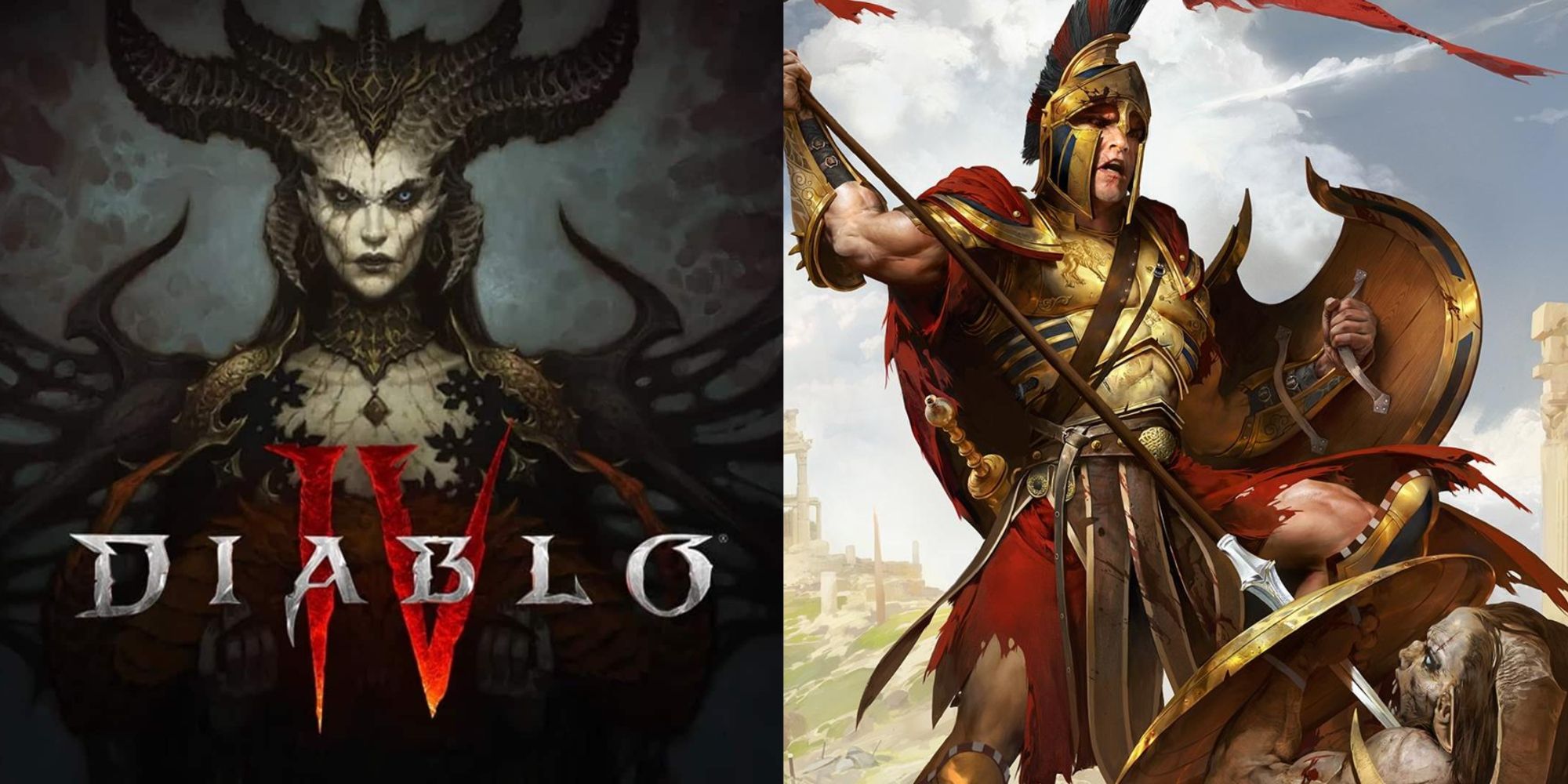
Best Games To Play If You Like Diablo 4
For those who've grown tired of Sanctuary and are looking for a new challenge, there are plenty of great games like Diablo 4 that deserve a look.
Since then, skill trees have appeared in just about any game "with RPG elements" with varying results. At their best, skill trees not only give the player the sense that their character is getting meaningfully stronger but also allow them to master each skill or mechanic in the game gradually. Since a mechanic needs to be unlocked with XP, a time or effort-based currency, they will be incentivized to try it out and understand it rather than ignore it.
The Elder Scrolls 5: Skyrim
Intuitive Activity-Based Progression
- While not the first to invent the concept, Skyrim perfectly demonstrates how activity-based progression is an intuitive and no-nonsense approach to progression
- This system removes the need for overthinking and planning builds but also gives players agency in how they develop their character
When game designers consider how a player might want to role-play their game, they often program quests or missions to grant XP upon completion, regardless of how the player completes the task. This way, the player can spend their points on developing their character as they see fit. However, activity-based progression, first seen in 1987's Dungeon Master, cuts out the middleman by offering players action-based XP whenever they use that skill or ability. The most recent high-profile iteration of this came with The Elder Scrolls 5: Skyrim, which bridged the gap between passive experience gain and the point buy system by doing both.
When a player's character levels up in Skyrim, they have advanced enough skills and are granted a perk point. In addition to becoming naturally stronger by swinging an axe, crafting hundreds of iron daggers, or torching annoying NPCs, they also get to choose the direction of their playstyle by taking gameplay-altering perks. Rather than deciding who they are right from the start, players can activate standing stones to speed their advancement in each skill.
Final Fantasy 5
The Highly-Customizable Job System
- Final Fantasy 5's job system gives players a tremendous amount of freedom when it comes to how they tackle battles and enemies
- Being able to switch jobs keeps gameplay fresh and makes leveling up relevant and meaningful
Although it always retains the same familiar imagery, the Final Fantasy series has never been afraid to mix up its mechanics between games. Rather than baking in a character's role in the party, Final Fantasy 5 allows each character to choose their job outside combat. This system enables players to obtain different jobs (classes) to their liking and motivates them to continue with the story on the promise of being able to unlock more. Each job levels up apart from the character, who also gains levels as they progress, keeping each battle fresh and giving the player an excuse to experiment away from their most viable tactics.
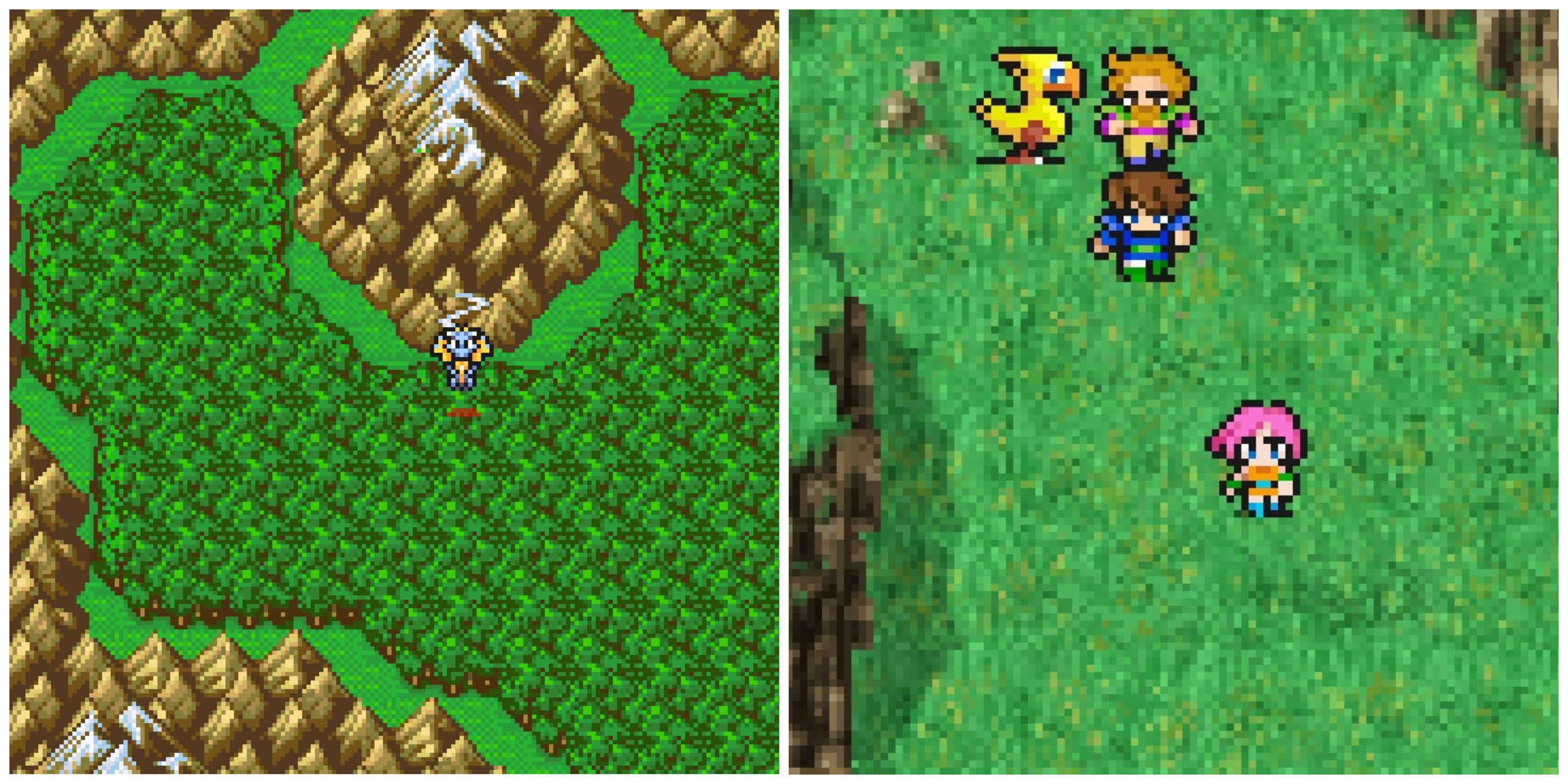
5 Things Final Fantasy 5 Does Better Than The Other Main Games
Final Fantasy 5, despite its age, still does a few things better than other mainline games in the franchise.
Jobs can be mixed and matched, as party members can permanently learn their job abilities and use them while equipped with other jobs. While a similar system is used in Final Fantasy 3, new jobs were simply upgrades of existing jobs, and abilities could not be mixed and matched. Additionally, the equipment the player could get their hands on dictates which jobs each player can use in Final Fantasy 3. Final Fantasy 5 pulled off the impossible by maximizing player freedom while cultivating a steady difficulty curve by placing appropriately leveled weapons and armor in the party's path.
Lost Odyssey
The Best Of Both Worlds - Gear-Based And Level-Based Progression
Lost Odyssey
- Platform(s)
- Xbox 360
- Released
- February 12, 2008
- Developer(s)
- Mistwalker , Feelplus
- Genre(s)
- JRPG
- A suite of clever game design choices keeps players feeling empowered but helps disincentivize grind
- Lost Odyssey utilizes learnable skills from items, character skill linking, and the traditional level-up system to create a varied and balanced upward experience
Never before has there been such a fitting title for a video game, as this gem has been all but lost to time thanks to a lack of ports from the Xbox 360. Lost Odyssey utilizes a highly refined system similar to the one seen in its spiritual predecessor series, specifically Final Fantasy 9. Mortal party members gain skills naturally as they level up and can gain abilities by equipping themselves with items. Immortal party members do not naturally gain levels by themselves. By "linking" with their allies, they can learn their skills. Immortals also permanently gain skills by using equipment.
Rather than simply looking for the gear with the highest number and skipping over the rest, players now have a reason to get excited at the sight of new equipment found in loot or shops. Lost Odyssey also protects players from "optimizing the fun out of the game" by ensuring encounters in each area only provide so much XP to one character before producing diminishing returns, killing any incentive to grind. Abilities gained from items are not limited, but as enemies will no longer level characters past a certain level, players are encouraged to grind only to obtain abilities, even out the party's level, or move on to the next story step.
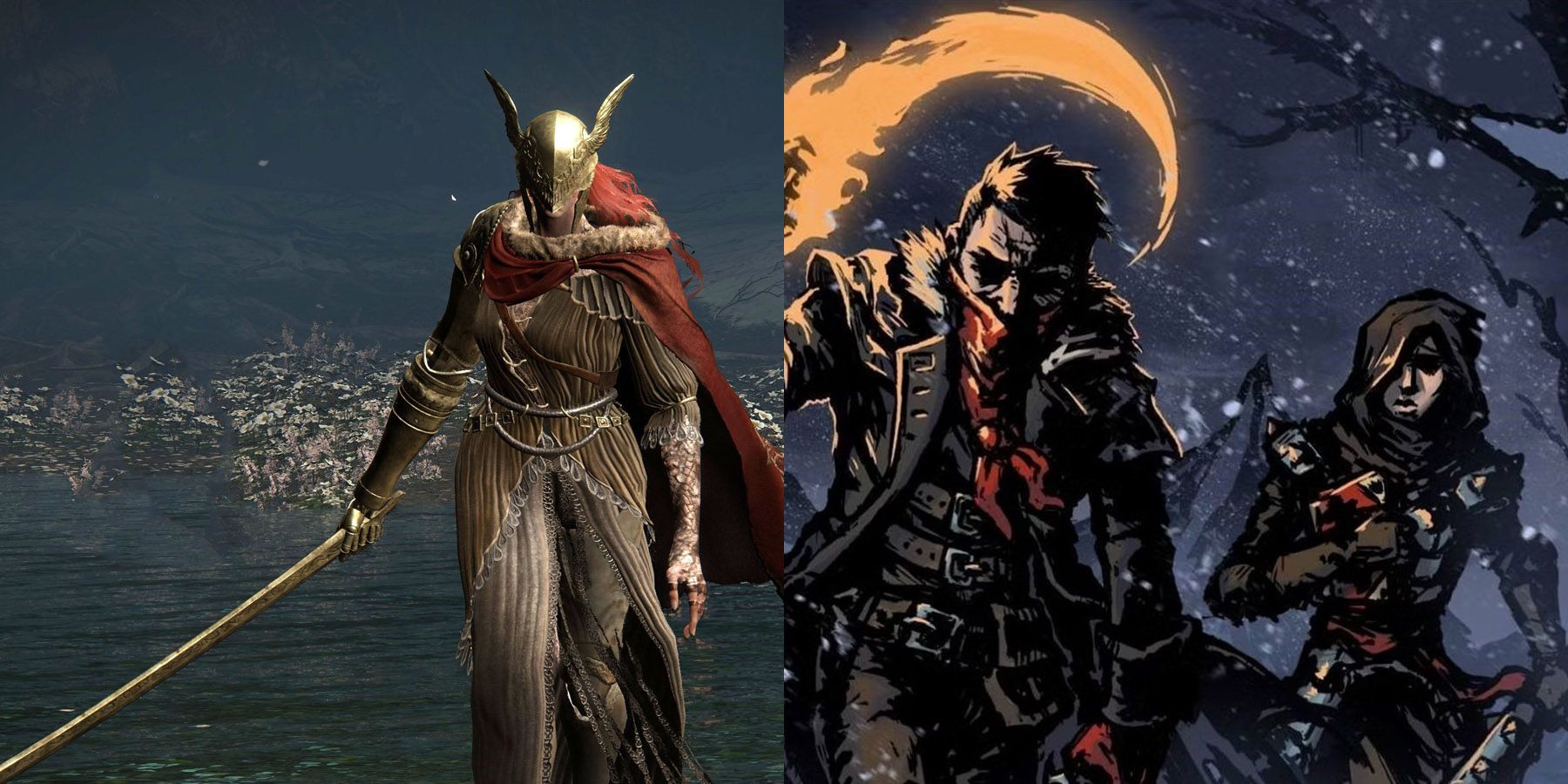
10 Hardest Xbox RPGs, Ranked
With the extensive backwards compatibility of the Xbox Series X/S, players can experience many difficult RPGs that will test their skills.

